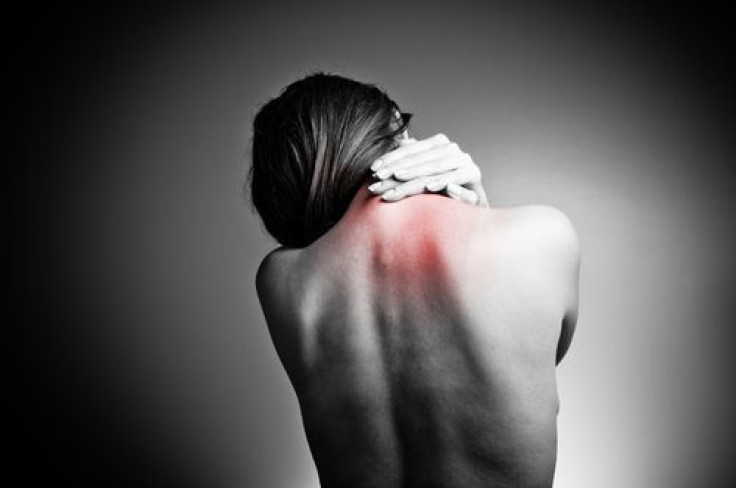Dreading Pain Can Be More Painful Than The Real Thing: Is It Better Just To Get It Over With?

Whether it’s the jittery anticipation of a root canal or the psychological torture of an upcoming speech, a painful event often begins showing symptoms long before the event is due. Now researchers are finding the pain associated with dreading such an event can even exceed the pain of the event itself.
A new study conducted by Imperial College London and the Wellcome Trust Center for Neuroimaging, University College London, suggests that when people are presented with two choices – either delaying unavoidable pain or “just getting it over with” – far and away the more preferable option is to expedite the suffering and just get it over with.
Researchers gave subjects the option to receive several electric shocks now or imagine painful dental appointments at various points in the future. A far smaller proportion of people decided on the dental route, opting instead to hasten the pain even when that pain would be greater than in the future. People were more willing, in other words, to experience great pain now than spend prolonged periods of time anticipating marginal amounts of pain.
This signaled to researchers that dread played a large role in motivating people’s fears and, ultimately, their decision-making. If people only considered the painful event, they often had no qualms choosing the later option over the immediate one, because the threat of pain was reduced later on. But when they thought about the hours of dread leading up to that less painful event, suddenly it became the less attractive option. As a result, the subjects opted for the shocks.
While the researchers noted that "further research is required to uncover the constitutive mechanisms of dread,” the present study echoes prior research that found anxiety about certain events registers in the same brain regions as actual pain.
Conducted in 2012 by researchers from the University of Chicago and Western University, in Ontario, the study found children who experience math anxiety leading up to a test produce the same sensations in the brain’s pain network as real pain. Interestingly, the anxiety wasn’t found to impact performance, suggesting that “it is not that math itself hurts,” the researchers explained, but rather, that “the anticipation of math is painful.”
A large body of evidence suggests that anticipation plays a critical role in maintain people’s happiness, and like the study of dread, the anticipation can intensify the feeling even more so than the event itself. Vacations are a prime example. A 2010 study into vacation happiness found that people are more likely to report feelings of happiness in the weeks leading up to the trip than in the time after the trip, and sometimes even during the trip itself.
A group of Dutch researchers took 1,530 adults and examined happiness levels among two groups, the 974 people who had taken vacations at some point during the 32-week study period and the remaining non-vacationers. The team found the largest boost in happiness came not from experiencing the vacation, but the weeks of planning beforehand, a period that lasted, on average, about eight weeks. Many vacationers showed similar happiness levels immediately after their vacation, and even the people who enjoyed the break the most receded back to baseline levels within two weeks.
“Vacations do make people happy,” lead author, Jeroen Nawijn, tourism research lecturer at Breda University of Applied Sciences in the Netherlands, told the New York Times. “But we found people who are anticipating holiday trips show signs of increased happiness, and afterward there is hardly an effect.”
Or consider a 1987 study that asked people how much they’d be willing to pay for a kiss from a celebrity if that kiss happened right now, in 24 hours, in three days, in one year, or in 10 years. Experimenters found people would pay the most not to kiss their celebrity of choice immediately, but to wait three days instead. They didn’t want just to get it over with, the researchers found; rather, to give themselves time to fantasize about the kiss and to imagine what it would be like and where it would take place. It was the anticipation that made the kiss more desirable.
These principles are, at base, the same principles behind the anticipation of pain being worse than the pain itself. Our imaginations get the better of us, and our expectations get overrun with wild thoughts of endless possibilities. Maybe the dentist’s drill will slip, puncturing our gums, even though such a thing has never happened to us before. And maybe the weather will be perfect the entire two weeks we’re in Aruba, even if the forecast tells us otherwise. Anticipation lets our minds run free, both for better and for worse.
Then reality sets in, and the event passes. Our dental appointment goes off without a hitch and the toothache is gone. We’re happy we went. Or our vacation ends and suddenly two weeks of bliss are now simply a series of photographs, to be hung on the wall of a cubicle first thing Monday morning. “People start working again,” Nawijn said. “They have to catch up. Usually there is a big pile of work for them when they get back from the holiday.”
Source: Story GW, Vlaev I, Seymour B, Winston JS, Darzi A. Dread and the Disvalue of Future Pain. PLoS Computational Biology. 2013.



























